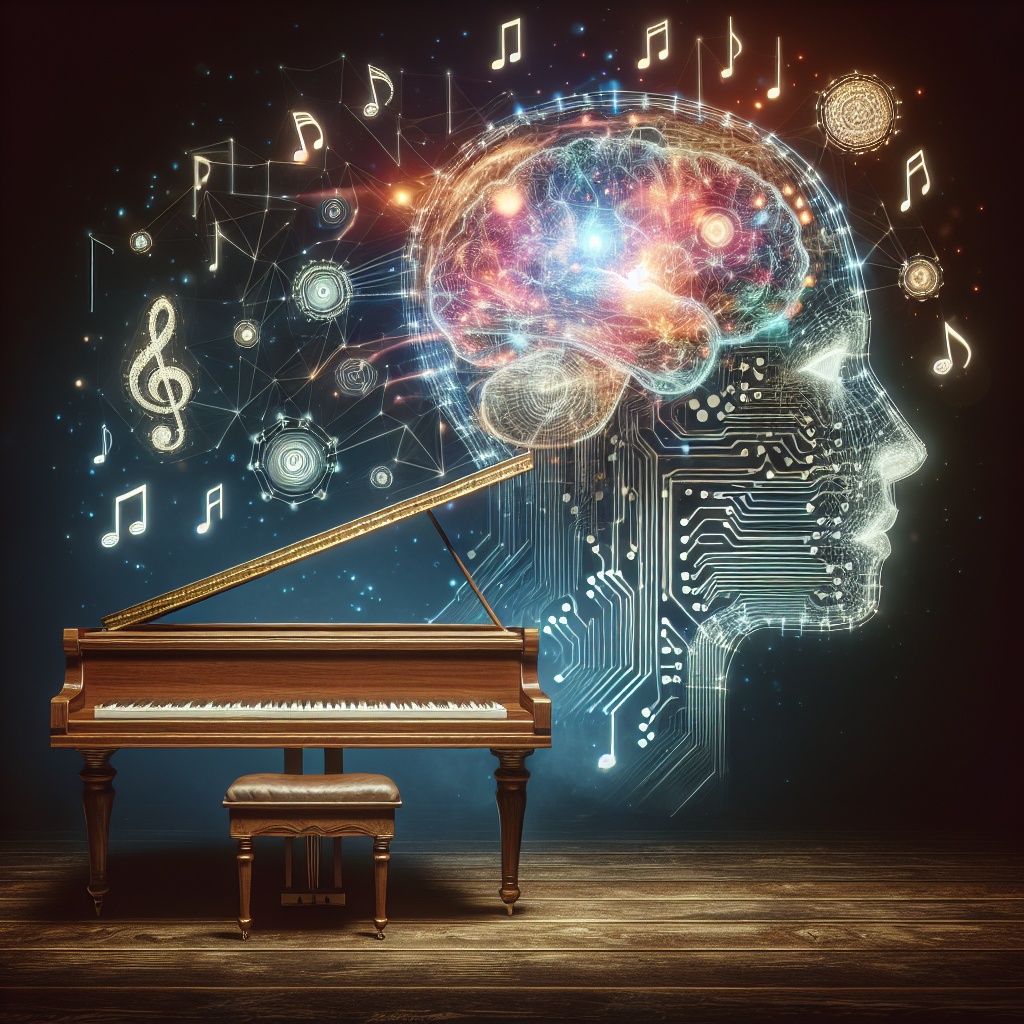The Psychology of AI Music Composition: How Does It Affect Our Perception?
Artificial intelligence has made significant advancements in recent years, with AI systems now capable of composing music that is indistinguishable from that created by human composers. This raises an interesting question: how does AI music composition affect our perception of music? In this article, we will explore the psychology behind AI music composition and its impact on our perception.
AI Music Composition: How Does It Work?
AI music composition involves using algorithms to generate music. These algorithms are trained on large datasets of existing music, allowing them to learn the patterns, structures, and styles of different genres. Once trained, the AI can then generate new music by combining and manipulating these learned patterns.
There are several different approaches to AI music composition, including rule-based systems, generative adversarial networks (GANs), and deep learning models. Each approach has its own strengths and weaknesses, but all aim to create music that is enjoyable and engaging to listen to.
The Psychology Behind AI Music Composition
One of the key aspects of AI music composition is the concept of creativity. Traditionally, creativity has been seen as a uniquely human trait, but AI challenges this notion by demonstrating the ability to create music that is both original and aesthetically pleasing.
Research has shown that people are generally receptive to AI-generated music, with many listeners unable to distinguish between AI-composed music and music created by humans. This suggests that AI has the potential to expand the boundaries of creativity and challenge our preconceived notions of what is possible.
Another important aspect of AI music composition is emotion. Music is a powerful medium for conveying emotions, and AI has the ability to evoke a wide range of emotions through its compositions. Studies have shown that people respond emotionally to AI-generated music in much the same way as they do to music created by humans, indicating that AI has the capacity to create music that is emotionally resonant.
AI music composition also raises questions about authenticity and authorship. When we listen to music, we often ascribe meaning and significance to the composer’s intentions and emotions. With AI-generated music, the lines between human and machine creativity become blurred, challenging our notions of what it means to create art.
Impact on Perception
The advent of AI music composition has the potential to revolutionize the music industry and change the way we perceive and interact with music. AI-generated music has already been used in a variety of contexts, from film scores to video game soundtracks, and its influence is only expected to grow in the coming years.
One of the key ways in which AI music composition affects our perception is through exposure. As AI-generated music becomes more prevalent, listeners are exposed to a wider range of musical styles and genres, expanding their musical horizons and challenging their preconceptions about what constitutes good music.
AI music composition also has the potential to democratize music creation. Traditional music composition has often been limited to a select group of talented individuals, but AI allows anyone with access to a computer to create music. This opens up new opportunities for aspiring musicians and composers, democratizing the creative process and giving voice to a wider range of perspectives.
FAQs
Q: Can AI truly be creative?
A: While AI does not possess consciousness or emotions in the same way that humans do, it is capable of creating music that is original, innovative, and aesthetically pleasing. Whether this constitutes true creativity is a matter of debate, but there is no denying the impact that AI has had on the creative process.
Q: How does AI-generated music compare to music created by humans?
A: Studies have shown that listeners are generally unable to distinguish between AI-generated music and music created by humans. Both types of music can evoke emotions, convey meaning, and resonate with listeners, highlighting the potential of AI to create music that is indistinguishable from that created by humans.
Q: What are the ethical implications of AI music composition?
A: The rise of AI music composition raises a number of ethical questions, including issues of authorship, authenticity, and ownership. As AI-generated music becomes more prevalent, it is important to consider the implications for musicians, composers, and the music industry as a whole.
In conclusion, AI music composition has the potential to revolutionize the way we create, perceive, and interact with music. By challenging our notions of creativity, emotion, and authenticity, AI pushes the boundaries of what is possible in the realm of music. As AI continues to evolve and improve, it will be fascinating to see how it continues to shape the future of music and creativity.

